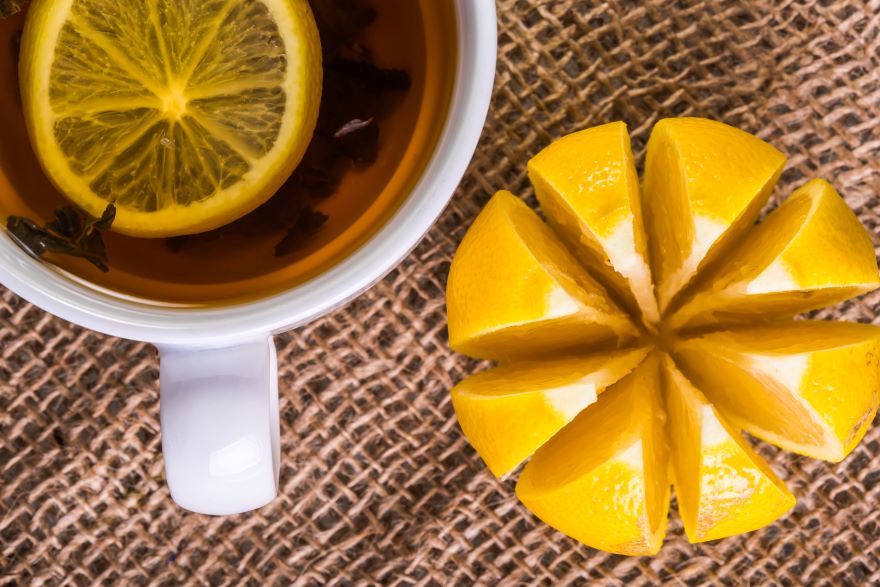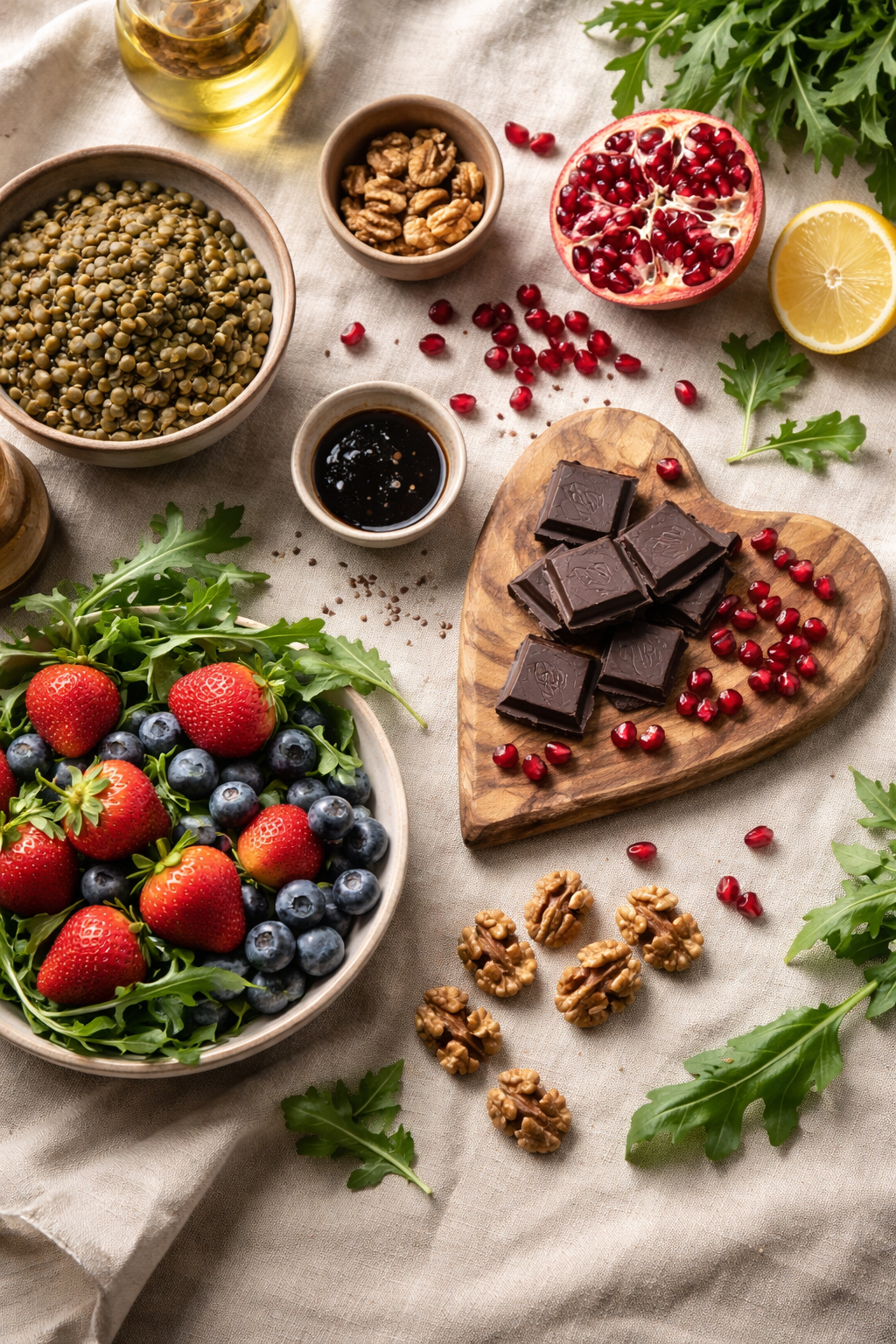As an avid tea drinker and health enthusiast, I am always on the lookout for new and delicious teas to try. One of my recent favorites is lemon herbal tea, which is not only refreshing and delicious but also offers a host of health benefits. In this article, I will share with you why lemon tea is a great addition to your tea collection and how you can make it at home.
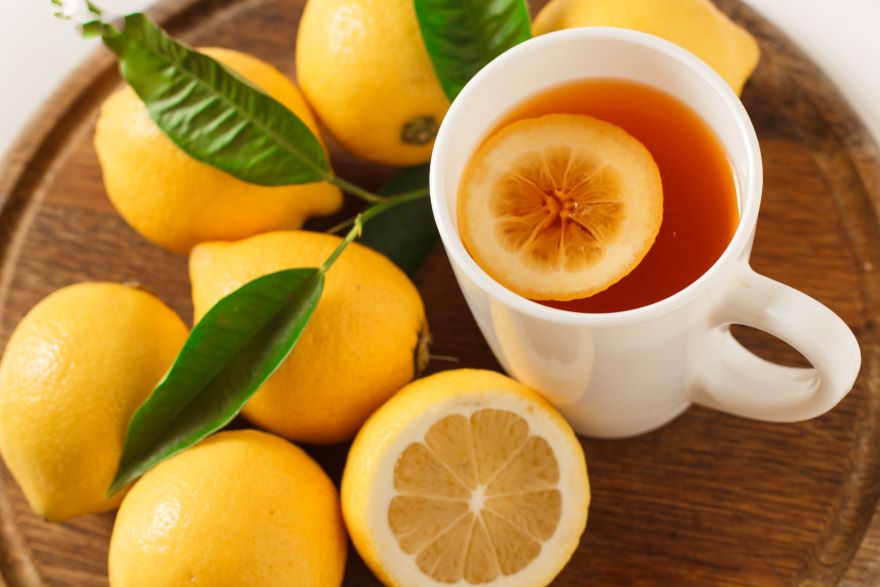
What is Lemon Herbal Tea?
To make lemon herbal tea, one infuses hot water with lemon and various herbs, such as chamomile, peppermint, or ginger. Lemon tea is low-calorie, caffeine-free, and refreshing with health benefits.
People in Asia used the herbal tea for medicinal purposes, giving it a long history. It gained popularity in Europe and the United States as a refreshing and healthful beverage. People worldwide enjoy lemon tea, which holds cultural significance in China, India, and Morocco. Lemon herbal tea’s popularity grows due to taste and health benefits.
Different ways lemon herbal tea is used around the world
- Lemon herbal tea has cultural significance in many countries around the world. Here are some countries where the tea is widely used.
- People in China often consume lemon tea for its believed ability to promote longevity and ward off illness.
- In India, lemon tea is a common way to cool down and refresh the body during hot weather.
- IMoroccans serve lemon tea with mint and sugar as a symbol of hospitality and friendship.
- Americans drink lemon tea for its health benefits, like boosting the immune system and aiding digestion.
Lemon tea’s cultural significance varies, but its popularity and health benefits make it beloved worldwide.
Health Benefits
- Boosts Immune System: Lemon tea is rich in vitamin C, which is essential for a healthy immune system. Vitamin C boosts white blood cell production, protecting against infections and diseases.
- Aids Digestion: Lemon tea can also help to aid digestion by promoting the production of digestive enzymes. The citric acid in lemon can help to break down food and improve the absorption of nutrients in the body. Herbal tea’s ginger and peppermint can soothe the stomach and reduce inflammation, making it great after meals.
- Reduces Inflammation: Lemon tea contains antioxidants that help to reduce inflammation in the body. IChronic inflammation can cause health problems like heart disease, diabetes, and cancer, despite being a natural response to injury or infection. The antioxidants in the tea can help to reduce inflammation and protect the body against these diseases.
- Promotes Relaxation: Lemon tea is known for its calming properties and can help to promote relaxation and reduce stress. Chamomile and lavender in herbal tea have natural sedative properties that soothe the mind and body. Drinking lemon herbal tea before bed can improve sleep quality and leave you refreshed in the morning.
- Lowers Risk of Chronic Diseases: The antioxidants in lemon tea can also help to lower the risk of chronic diseases, such as heart disease and cancer. These antioxidants help to protect the body against the damage caused by free radicals, which can lead to the development of these diseases.
Different types of herbs used in lemon herbal tea
One can make lemon tea with a variety of herbs, each of which adds its own unique flavor and health benefits. Some of the most common herbs used in lemon herbal tea include chamomile, which has a calming effect and helps to promote relaxation, peppermint, which aids digestion and has a refreshing flavor, and ginger, which has anti-inflammatory properties and adds a spicy kick to the tea. Rosemary, thyme, and lavender are other herbs that one can use to make lemon tea, and each of them has its own distinct flavor and health benefits.By experimenting with different herbs, you can create a unique and flavorful blend of lemon tea that suits your taste preferences and health needs.
How to Make Lemon Herbal Tea
Making lemon herbal tea at home is easy and requires only a few ingredients. Here’s what you’ll need:
- 1 lemon
- 1-2 teaspoons of your favorite herbs (chamomile, peppermint, ginger, etc.)
- 2 cups of water
To make lemon herbal tea, follow these simple steps:
- Cut the lemon in half and squeeze the juice into a teapot or mug.
- Add your favorite herbs to the teapot or mug.
- Boil 2 cups of water and pour it over the lemon and herbs.
- Steep for 5-10 minutes.
- Strain the tea and enjoy!
Best Time to Drink Lemon Herbal Tea
One can enjoy lemon herbal tea at any time of the day, but it’s particularly refreshing in the morning or afternoon. It can also be a great beverage to enjoy after a meal to aid digestion and promote relaxation. However, it is important to note that lemon tea is acidic and may not be suitable for people with acid reflux or other digestive issues.
Pairings
Lemon tea pairs well with a variety of foods, including light snacks like fruit or crackers. It also pairs well with other teas, such as green tea or white tea, for a refreshing and flavorful blend. If you’re looking for a more indulgent pairing, try pairing this herbal tea with a slice of lemon cake or lemon tart for a delicious and satisfying treat.
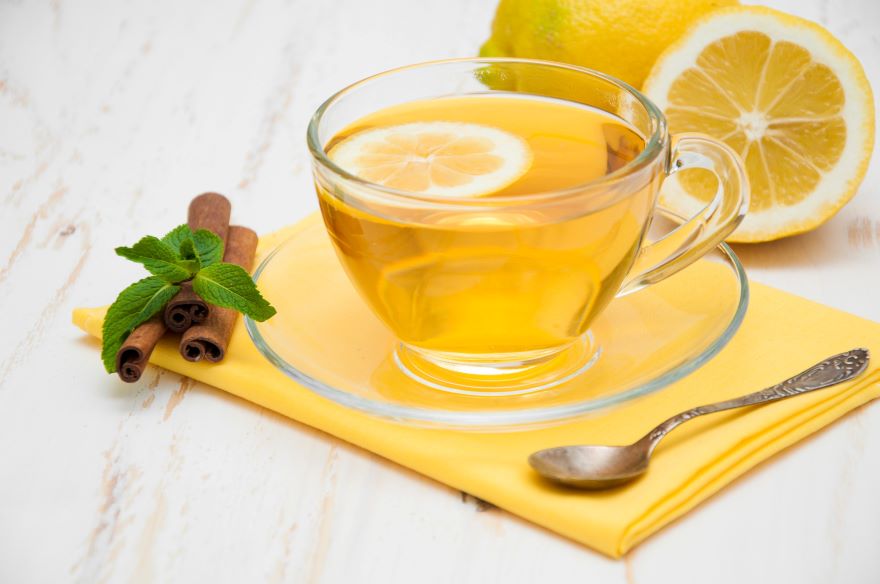
Conclusion
Lemon herbal tea is a delicious and healthy beverage that offers a range of health benefits, from boosting the immune system to reducing inflammation. It is easy to make at home and can be enjoyed at any time of the day. So why not add the tea to your tea collection and enjoy its refreshing taste and health benefits?
FAQs
- How much lemon should I use in my lemon herbal tea? It is recommended to use the juice of half a lemon for every 2 cups of water.
- Can I add honey to my lemon herbal tea? Yes, you can add honey to sweeten it.
- Can I drink lemon herbal tea before bed? Yes, this herbal tea can help to promote relaxation and improve the quality of your sleep.
- Is lemon herbal tea safe for pregnant women? Lemon herbal tea is generally considered safe for pregnant women, but it is recommended to consult with a healthcare provider before consuming.
- Can lemon herbal tea replace water intake? While lemon tea can be a refreshing and healthy beverage, it should not replace water intake as the primary source of hydration. It is important to drink plenty of water throughout the day to stay hydrated.
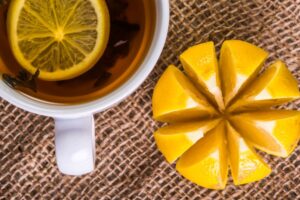
*We may earn a commission for purchases made using our links. Please see our disclosure to learn more.

